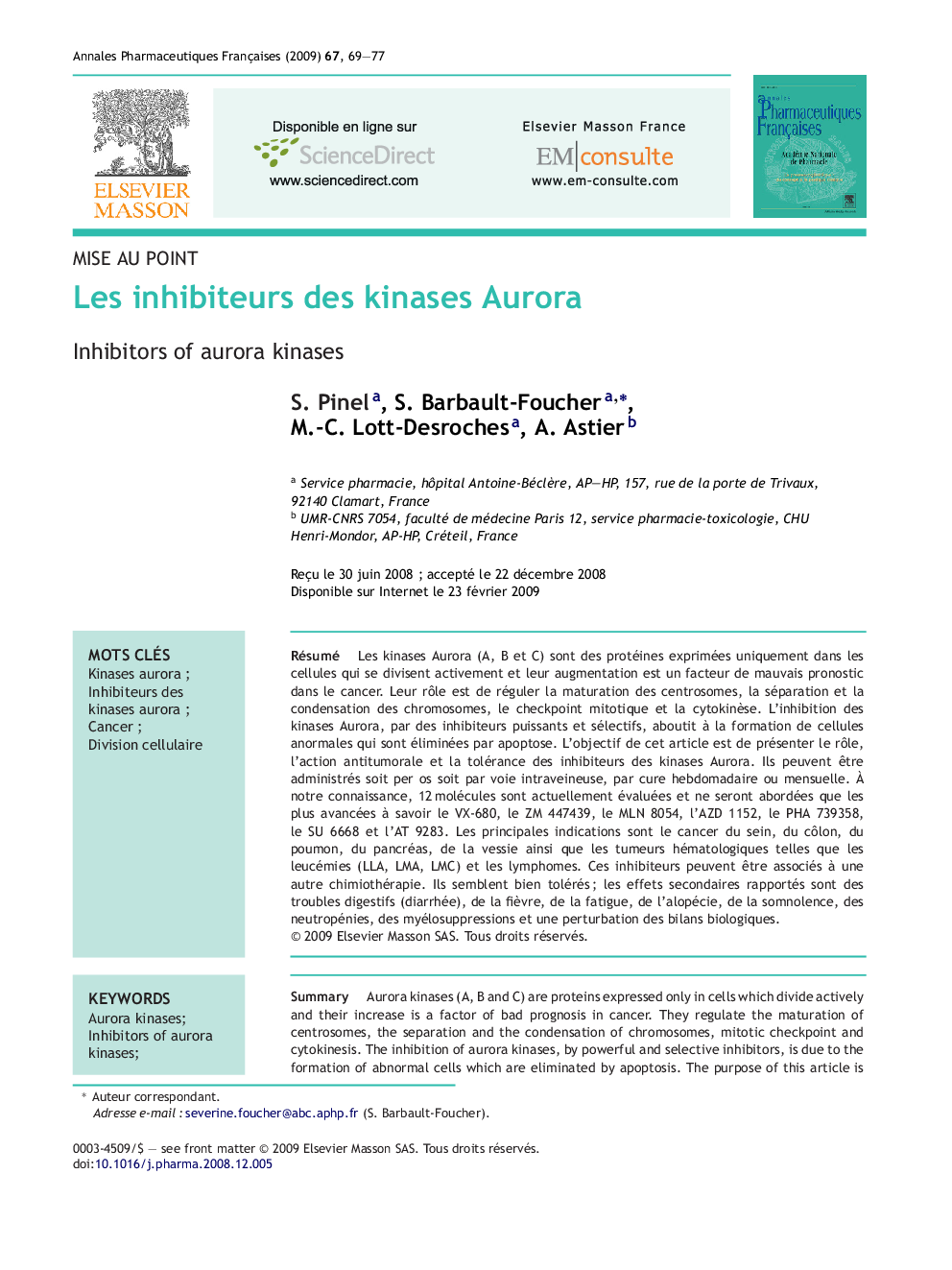| Article ID | Journal | Published Year | Pages | File Type |
|---|---|---|---|---|
| 2478277 | Annales Pharmaceutiques Françaises | 2009 | 9 Pages |
Abstract
Aurora kinases (A, B and C) are proteins expressed only in cells which divide actively and their increase is a factor of bad prognosis in cancer. They regulate the maturation of centrosomes, the separation and the condensation of chromosomes, mitotic checkpoint and cytokinesis. The inhibition of aurora kinases, by powerful and selective inhibitors, is due to the formation of abnormal cells which are eliminated by apoptosis. The purpose of this article is to present the role, the antitumor activity and the tolerability of these inhibitors. They can be administered orally or intravenously, on weekly or monthly schedules. In our knowledge, twelve molecules are evaluated at the present time and will be discussed only the most advanced namely: VX-680, ZM 447439, MLN 8054, AZD 1152, PHA 739358, SU 6668 and AT 9283. The main indications are breast, colon, lung, pancreas and bladder cancers as well as hematologic tumors such as leukemia (ALL, AML, CML) and lymphoma. These inhibitors can be associated with other chemotherapies. They seem well tolerated; the reported side effects are digestive disorders (diarrhea), fever, asthenia, alopecia, slumber, neutropenia, myelosuppression and disturbance of the biological markers.
Related Topics
Health Sciences
Pharmacology, Toxicology and Pharmaceutical Science
Drug Discovery
Authors
S. Pinel, S. Barbault-Foucher, M.-C. Lott-Desroches, A. Astier,
